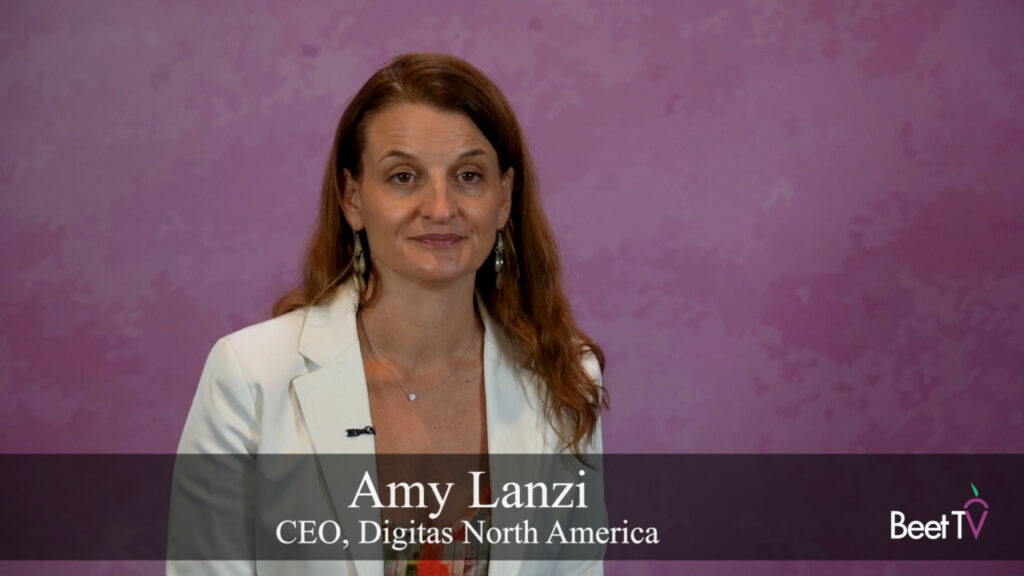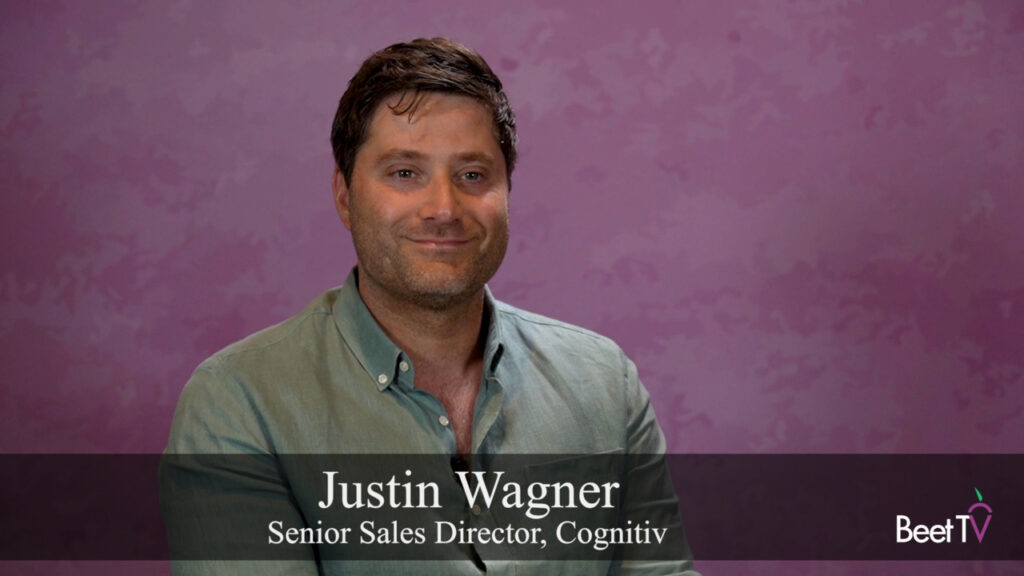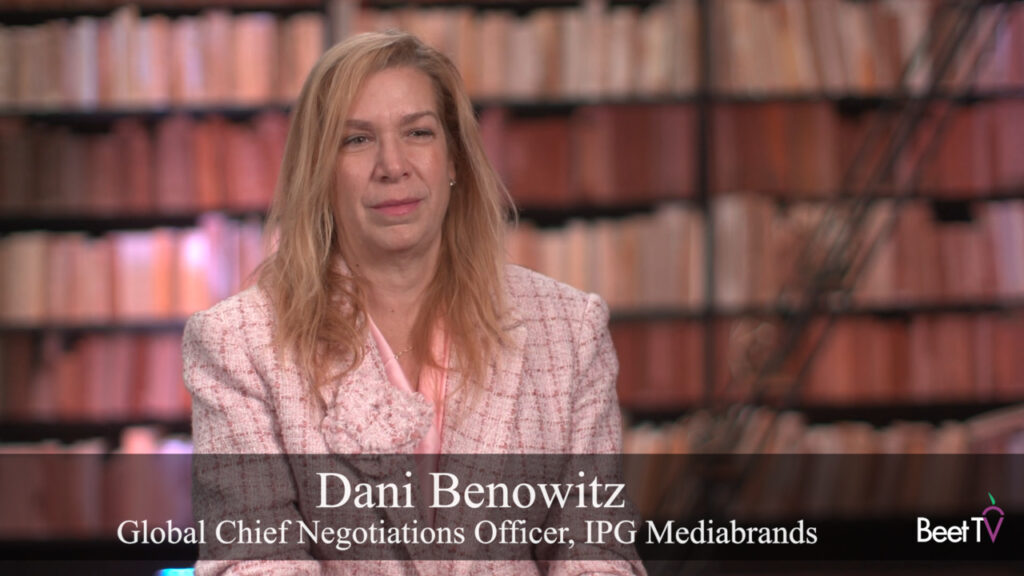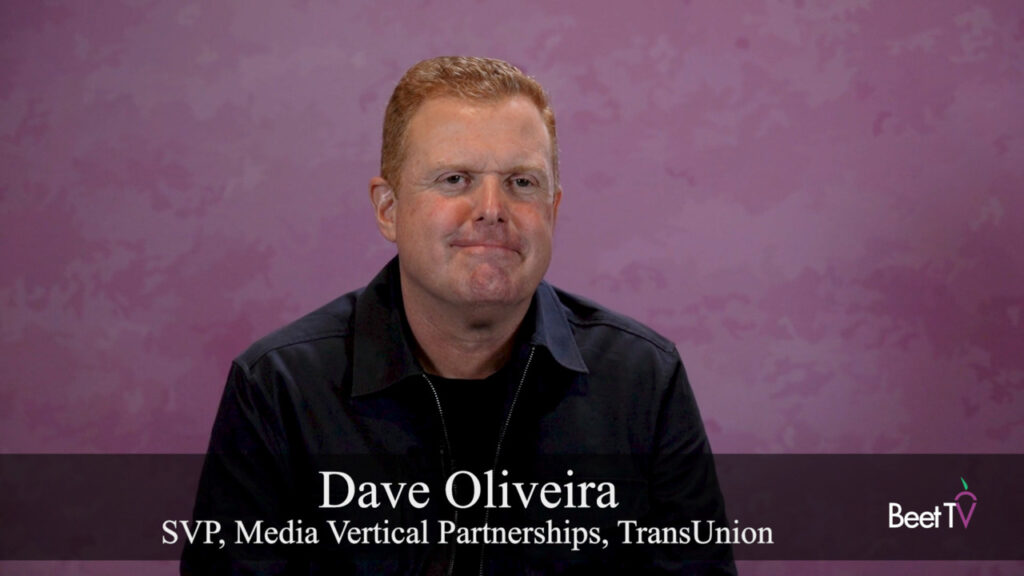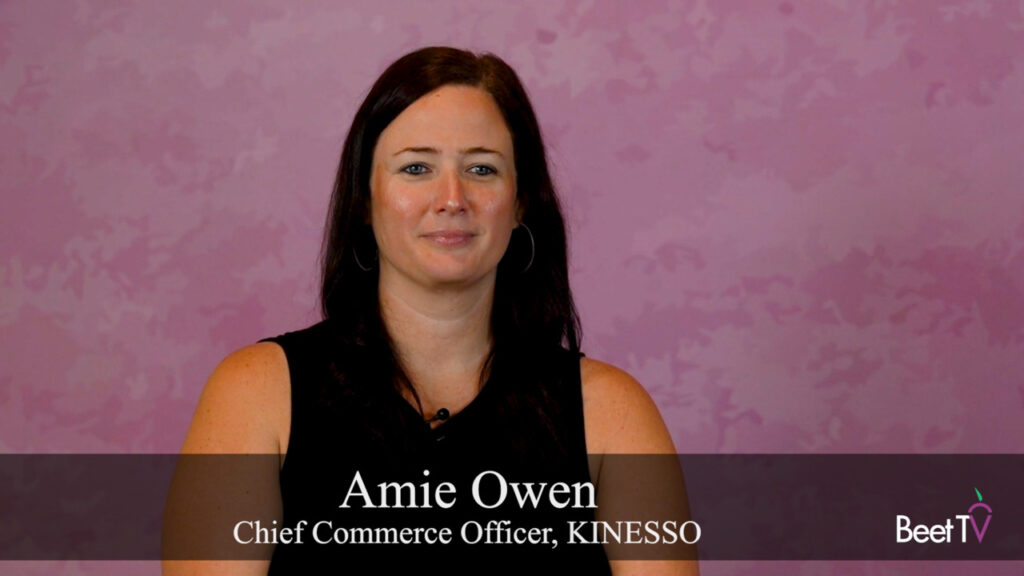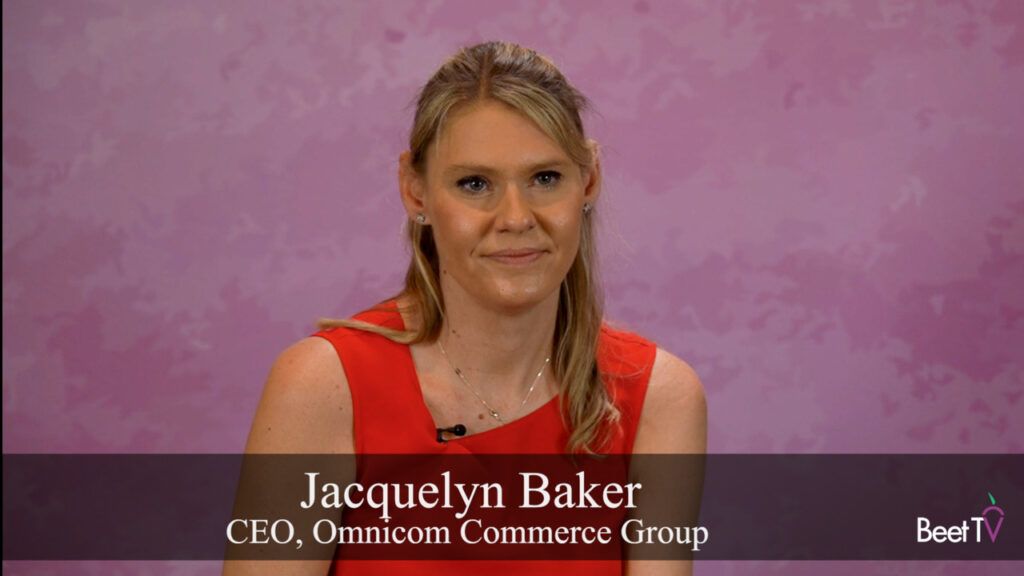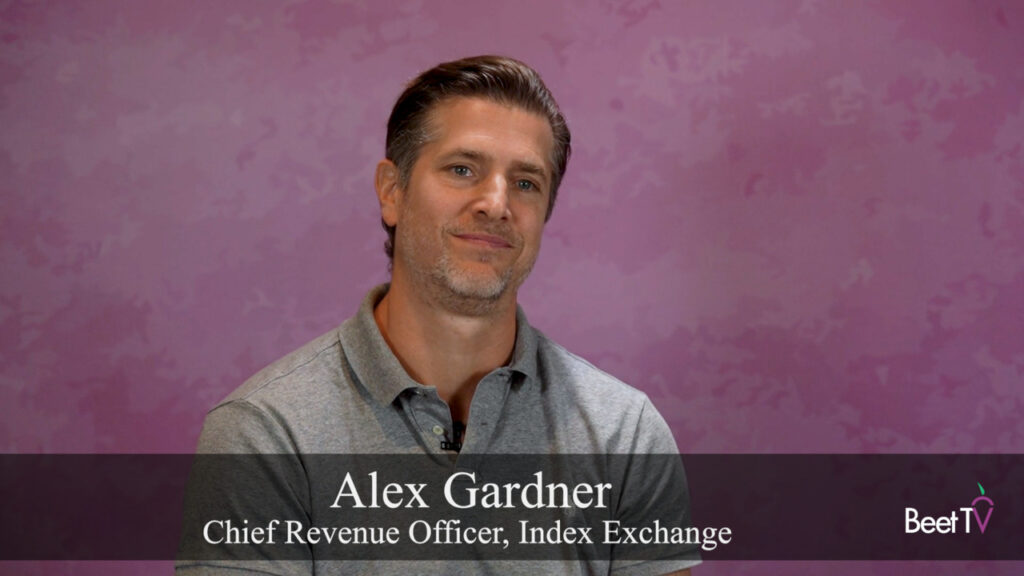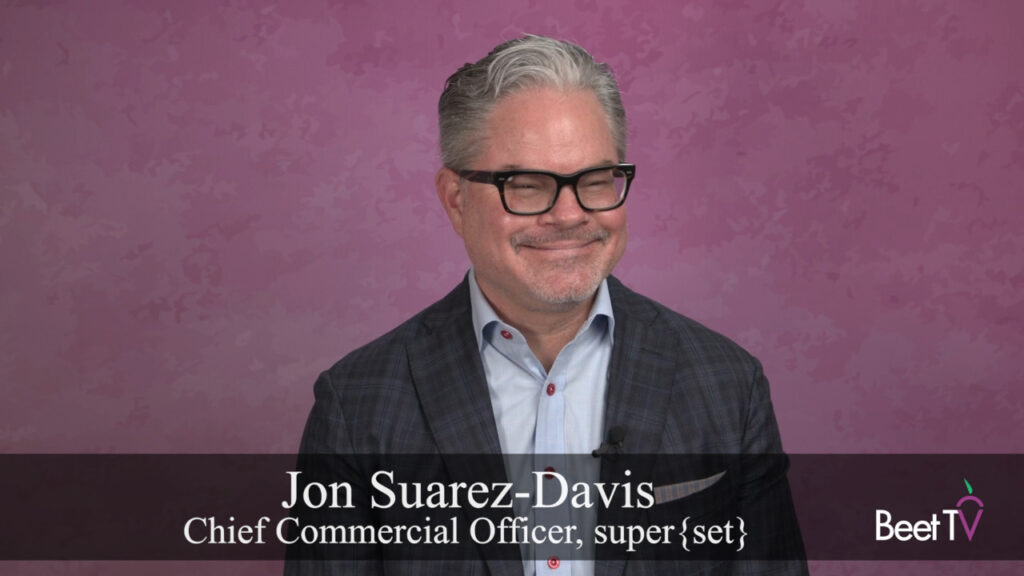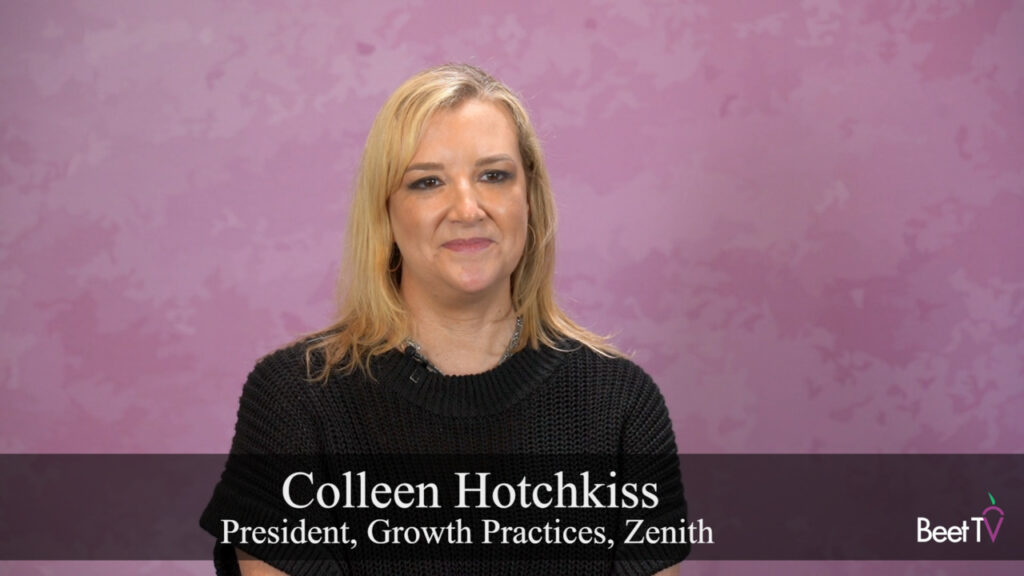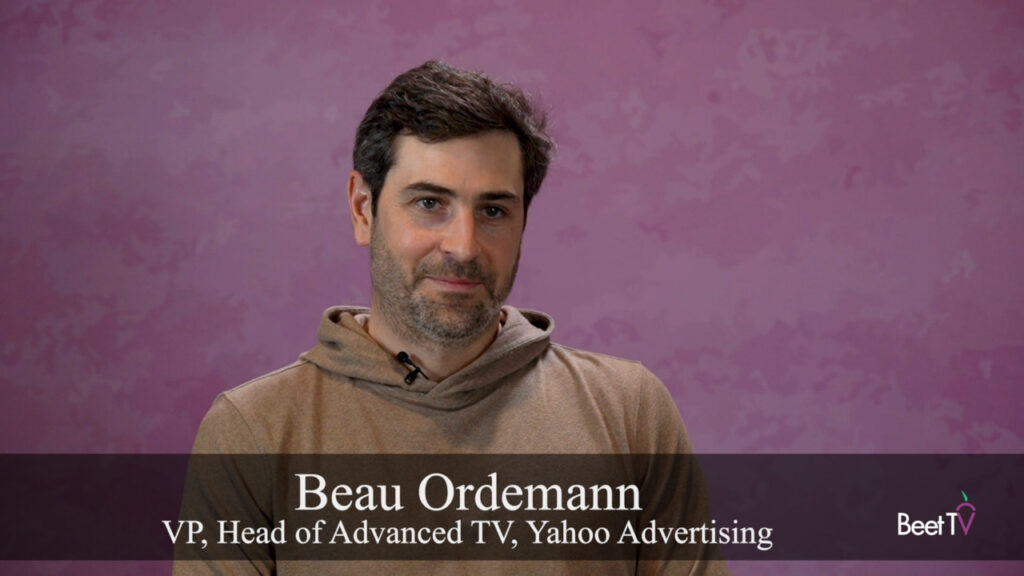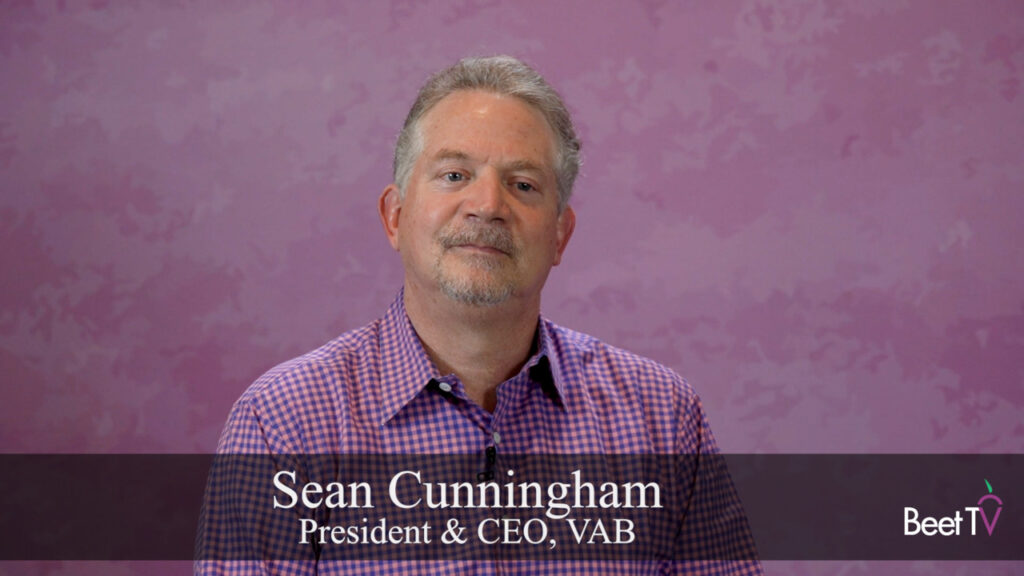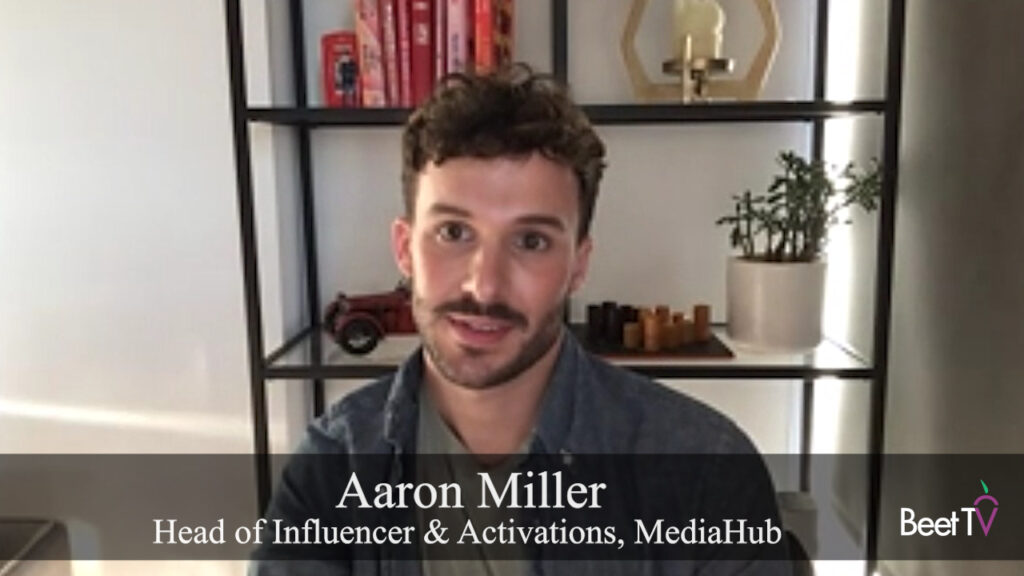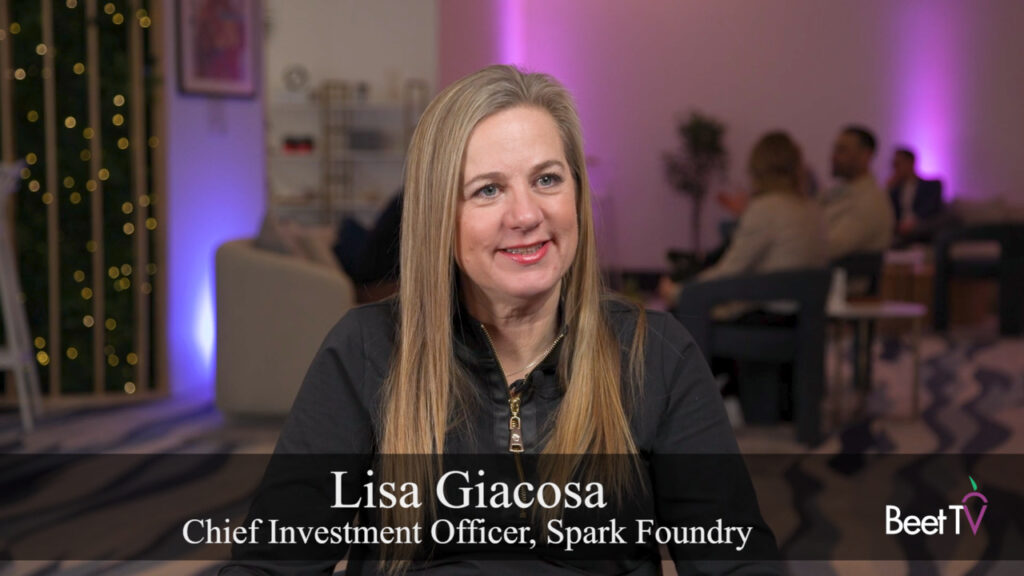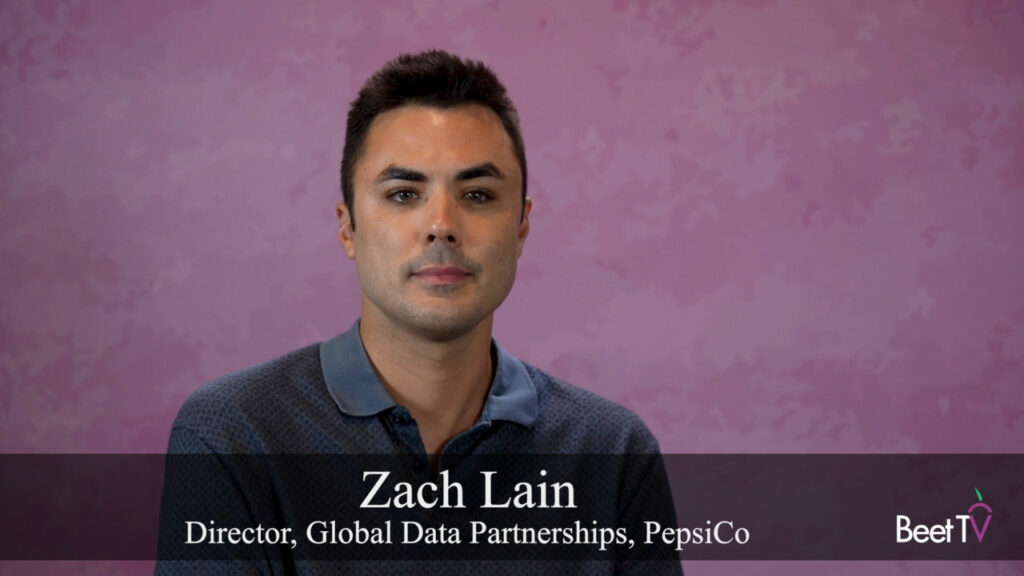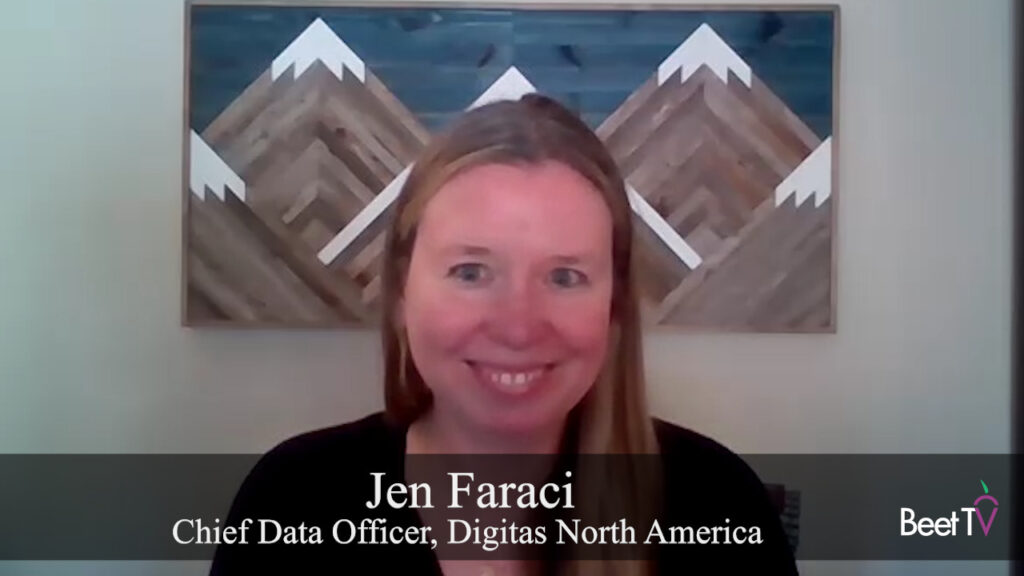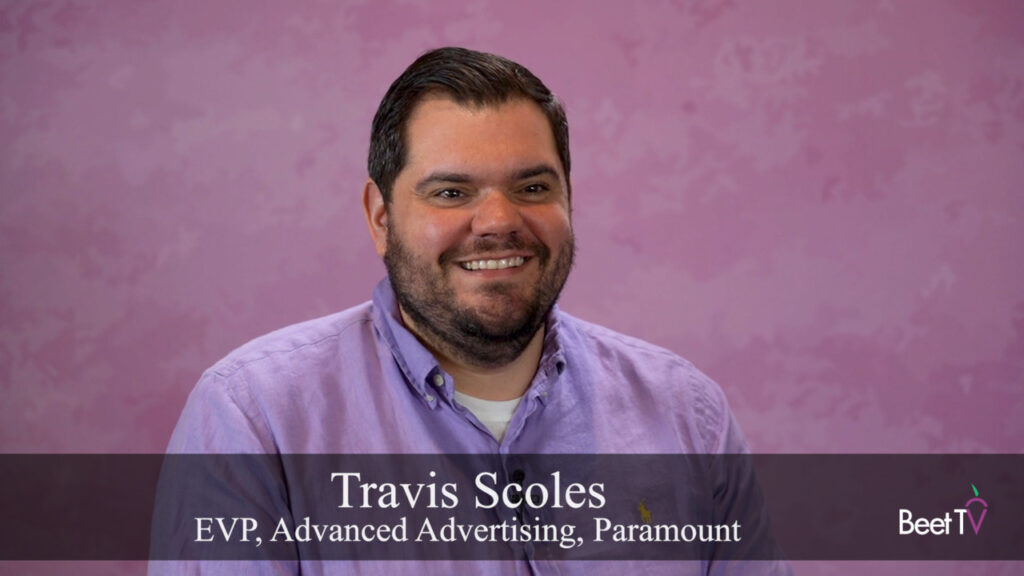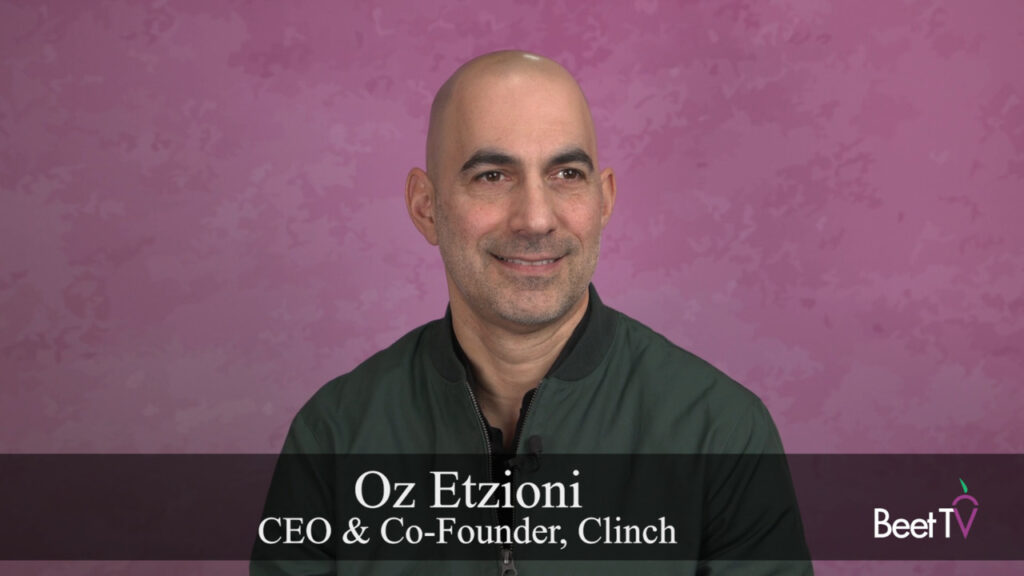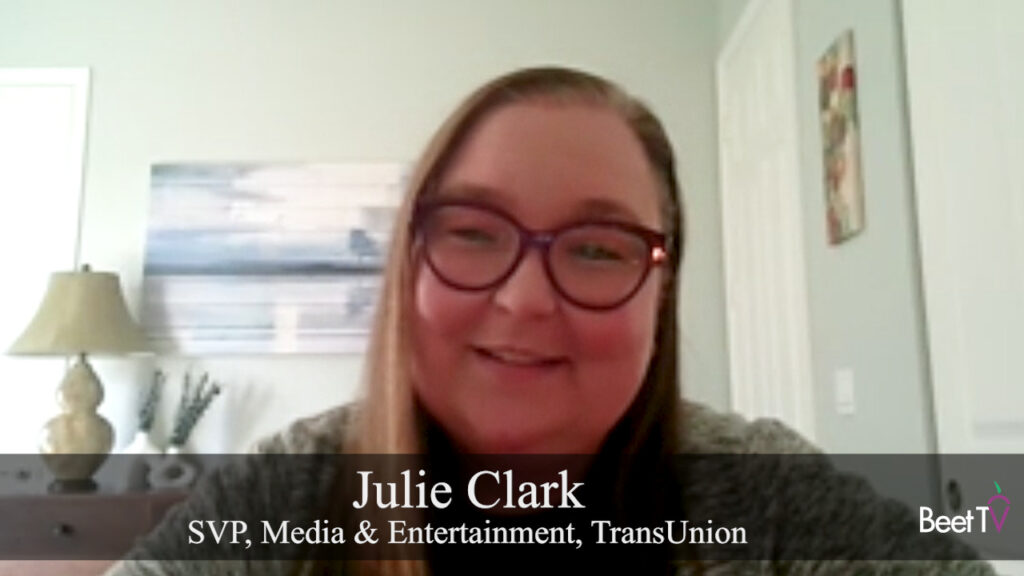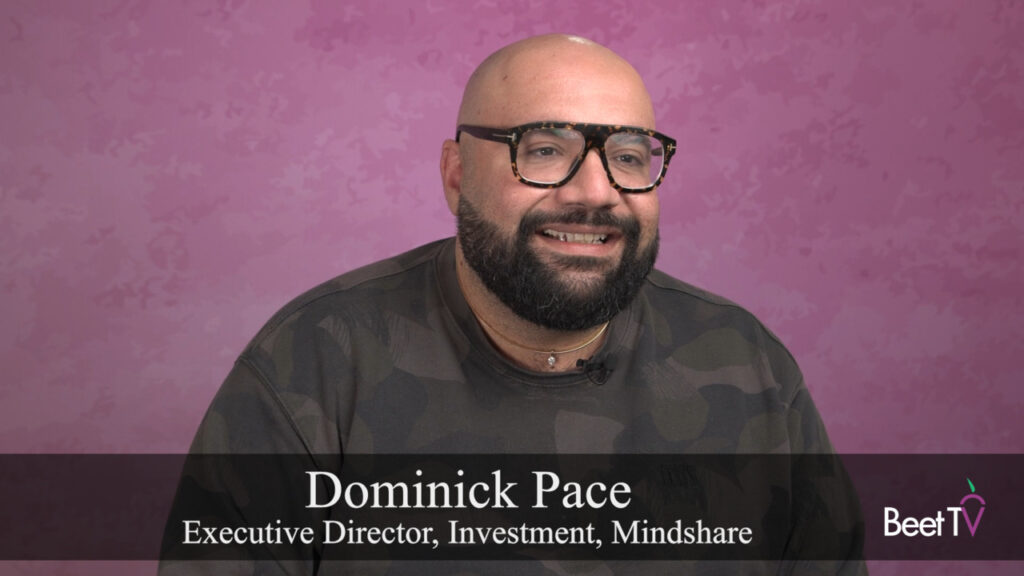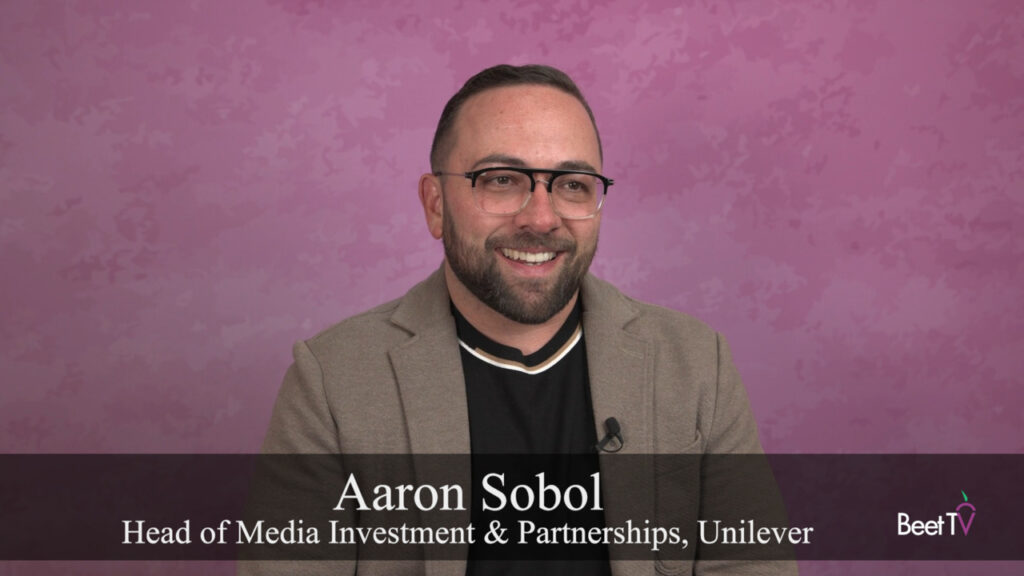
Warner Bros. online video destination TheWB.com has greenlit production on a Web original from former WB CEO Jordan Levin, who talked to Beet.TV earlier last week about the show.
Called “The Lake,” the original coming-of-age Web drama will be directed by Jason Priestley of “90210” fame and will follow four families during a summer on the lake. Each of the 12 episodes will run about seven to ten minutes, Levin told us during an interview at the Digitas New Front event in New York.
That’s a bit longer than most Web episodes run, but will give the show the time to explore emotions and relationships, Levin said.
The longer length also makes it easier for producers to take the show to television if it’s successful online.
The show is slated for an August 10 debut online. Warner Bros. digital arm is also involved in the production.
Levin also discussed the state of brand advertising on the Web and what advertisers and creators need to do to bring more dollars into this medium.
Details of the deal were reported last week.
Levin is CEO of Generate.
Daisy Whitney, Senior Producer
Video Transcript
Daisy Whitney: Hi I'm Daisy Whitney reporting at the Digitas New Front event and I'm here
with one of my favorite people, I can say that, I don't have to hide it. I'm here with Jordan Levin, who is the CEO of Generate, a multimedia production show. We've talked for many,
many stories in the past. Briefly give us a sense of what you were doing here
today because I understand you have a new show that's going to be coming
out very soon.
Jordan Levin: It is. We weren't here to talk about that today; we were
really here to be part of the conference. We were invited to present at what they call their soap box sessions, which is an opportunity to mix and mingle
with brands and various agents who may be representing some of
those brands. So that's why we were here.
Daisy Whitney: So did you do any any deals out of today then?
Jordan Levin: Yes, of course, we got one done five minutes in the room!
Daisy Whitney: That's what this
is all about getting ad deals done! But seriously, did you have a sense
though, that there will be business that gets written for you
out of this show? I mean, are you having the type of conversations with brands today
that could lead to an integrated brand deal for a web show or a TV show
whatever it is a couple of months down the road?
Jordan Levin: I think today's event is more about a dialogue in terms of getting some thought leadership around Digitas and the role that they play in pushing the market forward; and there's no doubt that the market is heading in this direction and
yet brands seem to be not investing heavily enough in this space to
nurture and catalyze it to the degree that the creative community's been
investing, to the degree that the venture community's been investing, or the
tech community's investing. And brands are a really necessary piece to
make this whole thing work.
Daisy Whitney: They hold the purse strings.
Jordan Levin: They hold the purse strings. Now, I have no
doubt that brands will invest in digital content because they will
follow audiences and audiences are migrating to digital, not abandoning
television, but increasingly experiencing content across platforms
which digital becomes a very intimate, more efficient way to
reach who you want to reach. But at the same time, the question really will
start to unfold is, "Who is it that they're having that conversation and dialogue with?" "Are they having that dialogue with the talent and the content creators, or are they dialoguing through more of the traditional
middlemen in the form of studios and distributors?" It's up to them which role they want to play, but there's a lot of independent producers here
today who offer them the opportunity to have that dialogue with talent.
And the question becomes a year from now, two years from now, will that number be as great? If they don't act, I don't think it will because
certainly the number this year is smaller than it was last year.
Daisy Whitney: So, is progress
being made though? I mean we've talked about this in the past. Is your
frustration about brands not getting on board as much as others are. Is that
just sort of an economic reality, that they're not interested in
spending as much money as you want them to spend?
Jordan Levin: I think no one's asking them to put
a lot of money at risk. I think the question is, "Can they activate some money
now, not be talking talking about fourth quarter 2010?" I don't know.
Pure-play digital companies that are in the production business, that's
going to be a struggle to wait until 2010. These aren't big budgets that are
being requested, but I think there has to be some key learnings that form. Brands were critical in the development of entertainment in
other mediums: television, radio. Brands should have a seat at the table
where they're a primary stakeholder and primary voice in how this new medium
emerges along with creators, along with distributors. And to the degree
that there's a dialogue? There certainly is one. To the degree that there's
action in the form of actual spending? On original entertainment,
original content rather than extensions of content that exist
primarily in traditional media? That, I think, is not happening to the
degree that it probably should.
Daisy Whitney: Okay, so we know that digital studios
are struggling and I know that you're not a pure digital studio. You have interests in TV, film, publishing, and so on, as well as talent management. We've
seen 60Frames go under, we've seen ManiaTV go under. What are sort of your two or three tips of what you need to do to survive,
for the Revision3's, the Next New Networks and, you know, and
obviously Generate because you're clearly playing in digital as well?
Jordan Levin: Well I think you have to recognize, I mean, it changes every day. So you've posed that question like I'm an expert and I've no
idea.
Daisy Whitney: The answer will be different tomorrow!
Jordan Levin: Yeah, it could be. But I believe there's
two areas. That there's either branded entertainment or there's
working largely for license fees. Unless you want a deficit finance, I don't
think deficit financing is a sustainable model. So then you get into needing to work with brands which probably is gonna be more effective if
you're working backwards from "What do brands want, what are their marketing
objectives, and how do you create content around that?" That's a long
process, of engaging in that conversation and then learning and
trying to ideate and execute against that. The second model is
more of a traditional license fee model, which is, you know, what we're
doing with various studious and various other distributors as well.
Daisy Whitney: You have a deal with Twentieth Century Fox.
Jordan Levin: We have a deal with Twentieth Century Fox on the television
side but, you know, for example, the project that you're referring to was
with, you know, was with a studio and a different distributor that were
operating in more of a traditional model. So I think you have to work, you have to work both ways.
Daisy Whitney: Now talk about…you've got something that you're
gonna be launching later this week or announcing later this week. Share with us the details on that. And we won't run it until you say
it's okay.
Jordan Levin: That's right. Sharan Magnuson would kill me over at Warner Bros.
Daisy Whitney: Me too, so don't worry about that. We'll be editing this.
Jordan Levin: Warner Bros. is
announcing it. But it's a really ambitious series that I'm very
excited about and we're producing a series called The Lake. And it
is going to be distributed on the WB.com. So it's a bit of a
homecoming for me. And it's directed by Jason Priestley and features a cast
of about fourteen, both adults and teens, and it is…
Daisy Whitney: What's the show about?
Jordan Levin: The
show is about three families whose homes share a cove on a lake where they vacation every summer and it's about the whole
heightened emotions and heightened sensibility that comes along
with summer. The ability to redefine yourself and and live out
what you strive for during those nine months when you're working, so it's…
Daisy Whitney: Now
do we have a launch date and any advertisers attached?
Jordan Levin: We do an advertiser
attached. Which I can't speak to. But we're performing various extensions of
the series with the larger meta-verse that will leverage some social
media tools and applications. And at the same time we're doing some
product integration as well some sponsorship and we…I'm waiting for
a definitive date, but it should be sometime in August and we'll probably
be releasing multiple episodes in a week and the episodes are longer than
the standard digital series. We're talking about more seven to ten minute
episodes. And we're trying to engage people more with character and a sense of
place and emotion, rather than, you know, very outrageous story turns and plot twists. So it's our hope that if people are watching longer
series online because they care about the characters that they'll care about
these characters. It's written by two wonderful young writers named Marcie Ulin and Meredith Lavender and they've just done a wonderful, you know, job
creating a voice for show that feels authentic. And, you know, it's our
hope that this is the start of, you know, property that could, you know,
continue to, you know, be developed further both online and maybe even in
another platform.
Daisy Whitney: Now, that's what I was going to ask you. Since the episodes
are a little bit longer, is this something that could be groomed and make
the jump to TV?
Jordan Levin: It's certainly a world that I think can make the
transition and the characters can make the transition.






